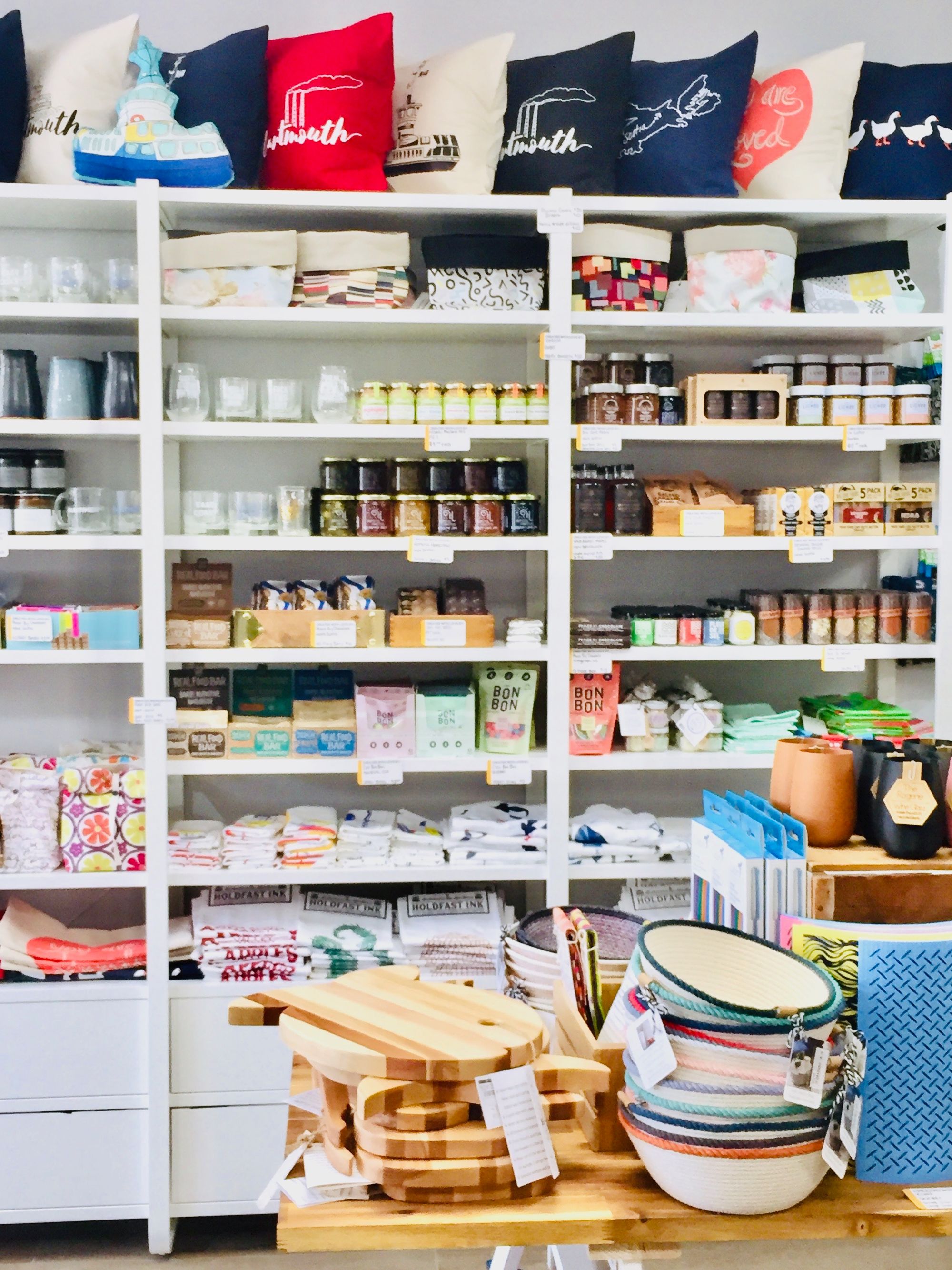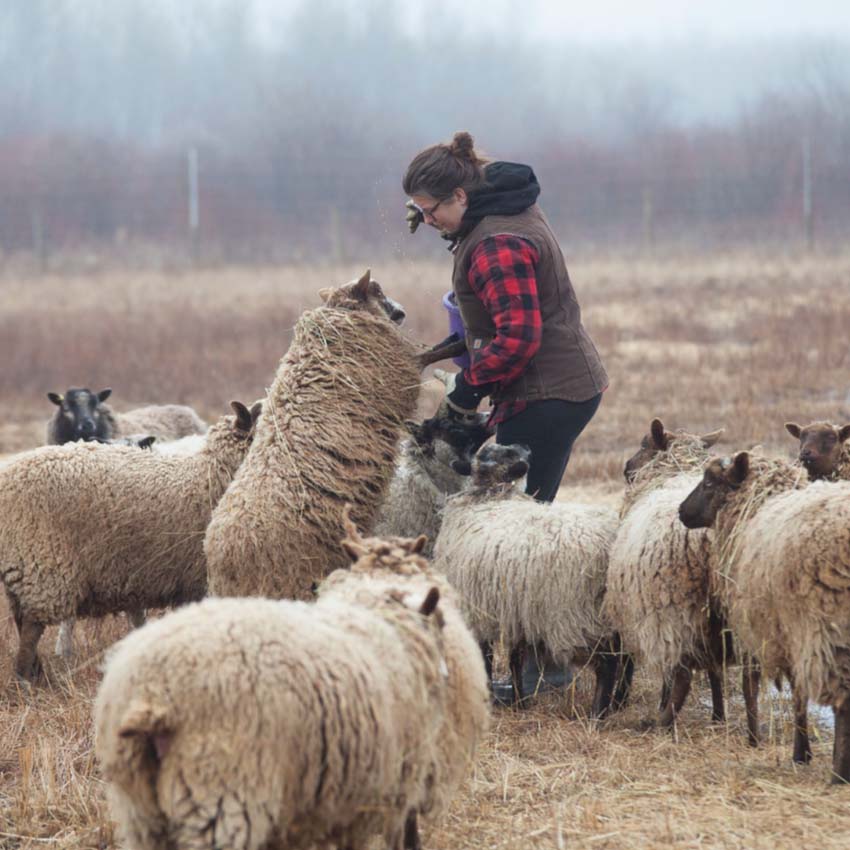About
Located in downtown Dartmouth, near Halifax, The Trainyard is all about community. They donate five percent of profits to regional partners, offer a selection of pay-what-you-can items in the store and do everything they can to support local makers. “We really believe strongly in the power of community and want to work with businesses that share similar values,” says owner Kimberly Dares.
The five-year-old shop only carries products from Canadian companies. Most are whimsical and practical handmade goods from small makers, many of whom are local to the area. When it first opened, The Trainyard sold goods on consignment, but as it’s grown, it’s switched to a wholesale model. Along the way, Dares and store manager Rachel Brisson have coached makers on how to sell wholesale; they currently offer Maker Meetups and one-to-one meetings to answer makers’ questions.
Owner Kimberley Dares, showing off her Gloria Fisher Downtown Dartmouth Business Person of the Year award.
In the shop
The Trainyard carries a wide variety of gift items like pottery, candles, artisanal food and greeting cards, as well as clothing, accessories and jewellery, plus books, DIY kits and a large selection of children’s goods. Canadian makers in stock include Hook, Line & Tinker (DIY embroidery kits), The Lunenburg Makery (needle felting kits), Button Pottery, Union Street Pottery, Old Barn Pottery, and The Rogerie (sustainable 3D-printed goods).
Illustrated cards by Bard Bard Bard are one of the many products in store that are created by local artists.
How The Trainyard chooses which products to carry
Dares looks for new makers on Instagram, at local craft shows, through the wholesale marketplace Faire and from makers applying directly to the store. The primary selection criteria are that the product must be from a Canadian company and preferably produced here as well, but Dares also considers whether items are a good fit and if the maker is community-minded. “We're fairly outspoken with the things that we do believe in in and the things that we're trying to do,” says Dares. “I want people who are applying to work with us to understand that that's where we're at.”
Another big component is being able to follow the extensive application instructions that are published on The Trainyard website.“You can tell pretty quickly when a maker has read it,” says Dares. “What really helps us decide is when I get an email and I feel like they're excited about what we're doing, and they're also excited about what they're doing.”
Makers who are community-minded get bonus points when applying to sell to The Trainyard. For example, Mini Tipi — whose blankets are carried in the shop and are a personal favourite of Dares' — is an Indigenous-owned business based in Gatineau, Que. (an Unceded Algonquin Territory), that donates a portion of its sales to local food banks and Indigenous women crisis centres.
What makers should know about selling wholesale
If you’re new to selling wholesale, Dares and Brisson suggest spending time on research, which could include reaching out to local stores. “I think most small shop owners who work with makers would be happy to give you feedback,” says Dares. For example, they might be willing to tell you if your products are retail ready, if your packaging is suitable for store shelves and, of course, what their particular store requires from makers in order to be considered for the shop. You can figure out some things on your own, too. “Locally hop around to look at the different shops that you're interested in selling to before even approaching them,” says Brisson.
What not to do when working with retailers
Both Dares and Brisson shared stories of makers who were rude or even outright lied when they approached them. “Someone came in and told me that they had been talking to the manager, and that they had told them to come back and bring their stuff and put it all out on the cash desk,” says Dares. And while yes, that maker had been talking to owner Dares originally, Dares definitely did not tell them to come back with their products.
Other pet peeves: not including pricing information, and pitching via Instagram. “I love Instagram as a way to meet people,” says Dares. “I loathe getting applications in my Instagram inbox.”
What retailers love
Personal notes in their order that express appreciation for the sale. “We have a whole wall in our storage room full of them,” says Brisson.
Best advice for makers
Says Brisson: “Don’t be scared of wholesale.” She and Dares encourage makers to be confident in putting themselves out there, no matter what stage they’re at in their business. If you have questions, seek out answers. “Find a venue for those questions,” says Dares, be it other makers, a local craft society or *ahem* the Workshop community.
You can find The Trainyard at 137 Portland Street in Dartmouth, N.S., near Halifax, and online at trainyardstore.com.
Have a question about selling wholesale? Pop it in the comments below or submit your question to our experts here.







